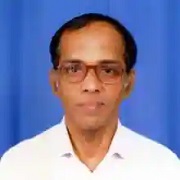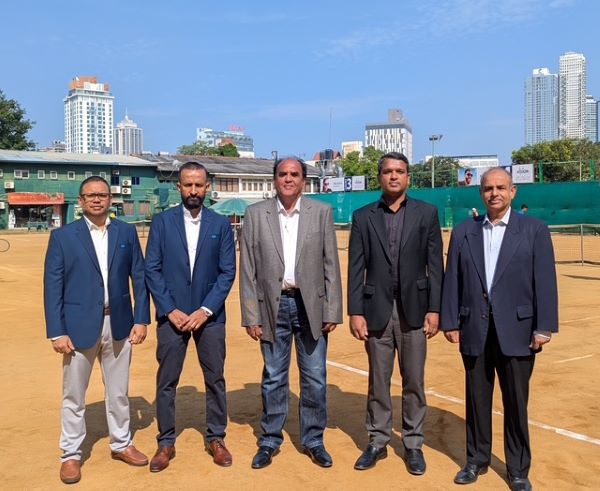WHAT IF REMEMBERED OR UNREMEMBERED AFTER PASSING AWAY – By N. S.Venkataraman

It appears to be human nature and nature of every creature in the world to desire to live as long as possible. In spite of such wishful thinking , humans are sub consciously aware of the grim reality that living for ever is not possible , as death is a natural and unavoidable event . In such scenario, most of humans desire to be atleast remembered for all time to come or for as long as possible , after their passing away. There are several instances when people buy and reserve land for their bodies to be buried or burnt after their demise, so that they would stay in the memory of future generation. We often hear about memorials constructed , statues erected by admirers and friends for people after they pass away, to perpetuate their memory.
Such “greed” for being remembered may be there amongst many people and may be particularly prevalent amongst people with high level of disposable income, political heavyweights, leaders holding power in government and other so called celebrities who are carried away by the reputation , popularity or familiarity in society that they command .
What reason for the craze ?
What could be the reason for such “craze” for desiring to be remembered, particularly when one would not know for certain the destination after the life process. Obviously, such desire must be due to the ego centric mindset of people , which appear to be a basic feature in the thought process of everyone, whatever may be the background.
What religions advocate ?
The reality is that there is no conclusive and proven fact on from where one is born and where would the person go after demise.
Laboured explanations have been evolved by deep and persistent thinkers , who are respectfully referred to as saints, sages or founders of religion , who have been pondering on the subject over past several generations. Conclusions have been arrived at by such deep thinkers based on their thought process and sincere introspection . Such findings may be viewed as postulates or guesstimates or unproven , as per the rational thought process that humans are endowed with.
Some religions say that there would be hell or heaven, where individuals would go after death and it would be hell or heaven depending upon the sins or good deeds carried out in the life process.
Hindu religion provides more deeper explanation, stating that there would be re birth and re death for individuals , depending upon the sins or good deeds committed during the life process. Hindu religion advocates detachment from material desires and speaks about Jeevatma ( inner soul ) and Paramatma or Brahman ( God / Almighty ) . Hindu religion advocates that the ultimate objective of every human should be to achieve Supreme state of mental bliss ( referred as Ananda in Sanskrit ), when Jeevatma would merge with the Brahman and then that would be the end of re birth and re death process.
Religions in effect ask humans to simply accept whatever explanation given by the religions without questioning and surrender to God. Hindu religion calls this state as Saranagathi.
The net view according to religions is that the life is only a time passing exercise and there is no particular purpose for life other than reaching the feet of God.
Almost all people in the world have come to accept any one of the above views, as there appear to be no other better convincing view.
The desire for being remembered after demise can only be due to hollowness in the thought process which may be a shallow thought.
Limitations of science and technology :
Science and technology evolved over several decades have found explanation for many events in the world and significant technology developments and progress in communication etc. have been made possible. Cloning process have been developed where it would be possible to create and modify the behaviour and appearance of all sorts of creatures in multiple ways. Robot and artificial intelligence now can substitute the human activities in variety of ways, to some extent . Such developments in the field of science and technology provoke basic question as to whether the life process of individuals are really determined and guided by God .
However, science and technology has not so far explained from where the concept of birth start and where the concept of death end. As of now, there is no indication that science and technology would be able to find an ultimate explanation for the “Creation” and “Creator”, in a way that would be in tune with the rational thought process that humans are capable of.
Science and technology cannot find any justification for the desire to be remembered, as it has no answer for several vital questions regarding the origin and end of life .
Desire for remembrance is in vacuum :
Adi Sankara , one of the greatest Hindu saints asked the question “bhaktih kim na karoti ?” which means as to what is that one cannot achieve by remaining dedicated at the feet of Brahman unquestioningly. Bhakti is same as self enquiry to realise the truth regarding life process. Obviously, Adi Sankara implies that there is nothing better to be practiced in the world other than surrendering to God sincerely and unquestioningly without any sense of doubt about the existence or otherwise of God. Such view, obviously denotes that desire to be remembered after the life process is a thought process in vacuum.
Bhagwan Sri Maharshi , another great Hindu saint, who lived in recent times asked everyone to introspect on “Who am I “., He asked everyone to turn the mind inward . Obviously, Bhagawan Ramana Maharshi implies that such sustained introspection would make one realise that the desire to be remembered by future generation can only be due to ignorance..
In such circumstances, vexed question cannot but arise whether it is only shallow thought to desire to be remembered after demise or admirers seeking to perpetuate the memory of those who have passed away, by erecting memorials and statues . It appears to be even more shallow idea to honour the dead persons by conferring award posthumously.
Whether shallowness or not, it certainly makes no difference for the departed persons, wherever they may be and whatever they may be.




















